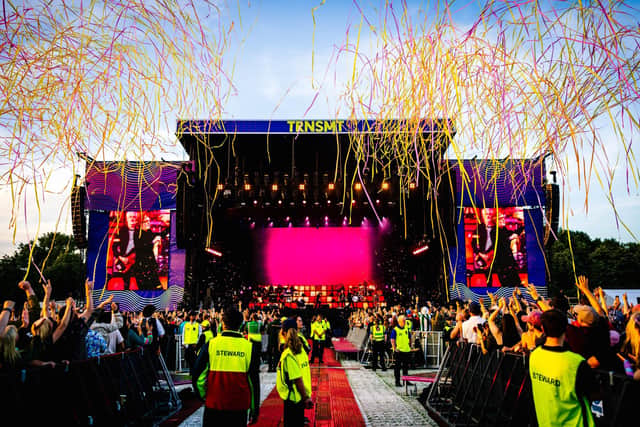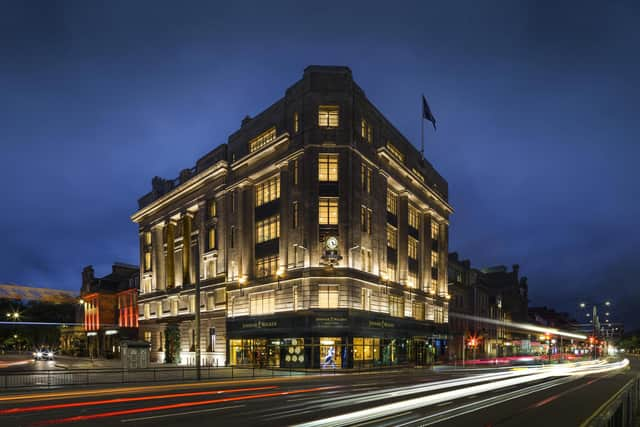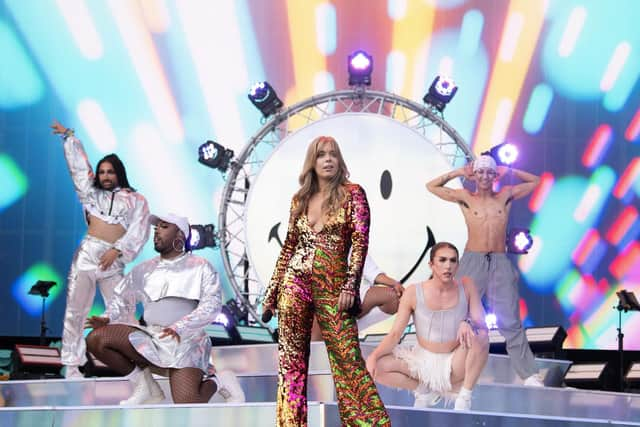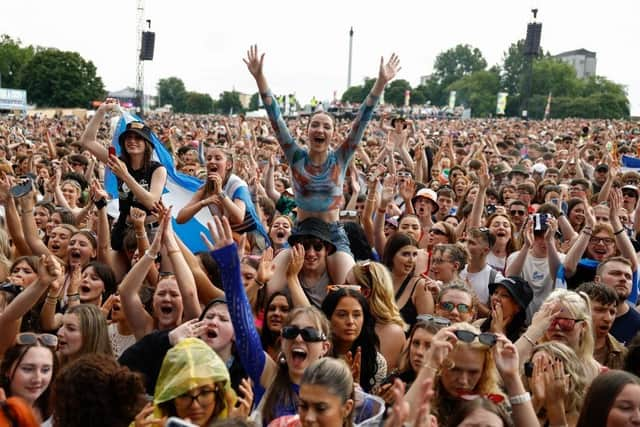Fears for future of Scotland’s cultural landscape if controversial alcohol advertising curbs on sponsors go ahead
Fears have been raised that Scotland faces the prospect of losing long-running festivals and events vanishing from the country’s cultural landscape if controversial curbs on alcohol sponsorship and advertising are introduced.
Government agency Creative Scotland, arts industry leaders and event organisers have warned ministers of the “potentially devastating" impact of blanket bans on beer and spirits brands being introduced.
Advertisement
Hide AdAdvertisement
Hide AdThe Government, which has pledged action to tackle what it describes as “one of the most pressing public health challenges that we face in Scotland”, has been told it will have to provide public subsidy for some events for the first time to avoid them going under financially.


Initial proposals put out for consultation by the Government at the end of last year suggested alcohol sponsorship of non-sporting events as “an area of potential restriction”. The Edinburgh International Festival, the Fringe, the Tattoo, the TRNSMT festival and the Summer Sessions concerts series were all cited as examples of events which could be affected.
Despite widespread opposition from Scotland's events industry, cultural sector, tourism bodies and hospitality organisations, the introduction of restrictions has been backed by public health bodies and alcohol reduction charities.
The Government is pressing ahead with a second consultation next year on new proposals, which would take account of the views expressed so far, along with international public health evidence and advice from the World Health Organisation (WHO), which describes restrictions on alcohol advertising, sponsorship and promotion as "impactful and cost-effective measures".
However, in a highly-critical submission to the Government, Creative Scotland states: “We do not believe that the proposals are justified, given the potential loss to the cultural sector across Scotland that such a restriction would entail.


“We aware that alcohol sponsorship represents a key revenue stream for many organisations, events and festivals. It could be in the form of sponsorship of an event, the provision of bars at a festival, or in kind sponsorship for a gallery opening. We believe that the impact of removing alcohol sponsorship as a revenue stream, especially at this time of acute financial challenge, has not been addressed.
"The arts, screen and creative industries were some of the hardest hit in the pandemic, with audience numbers still not back to pre-Covid numbers, and the impact of Brexit, energy costs and the cost-of-living crisis add to current difficulties.
Advertisement
Hide AdAdvertisement
Hide Ad"If, as is proposed, sponsorship of events is banned, there is a very real concern that some festivals and other events would lose revenue to such an extent that they may not be able to run, affecting the cultural life of Scotland and the benefits that brings.
"This is especially true of commercial events and festivals, which currently run without any public subsidy. Either these would not take place, or they would need funding from other streams, including public funding, to keep going.”


Creative Scotland has warned curbs could change the country’s “cultural eco-system”, and also have a knock-on impact on local communities, economies and the tourism sector.
The Scottish Music Industry Association, which represents around 3,500 businesses and individuals, has warned any restrictions would have “very significant negative implications”.
It has told the Government: “Sponsorship opportunities are vital to a wide range of our members, and in particular to the events and cultural activity they create.
"The Scottish music industry has not historically been significantly reliant on subsidy, in part because of its resourcefulness, but that relationship to state funding would have to change if the livelihoods of musicians and the network of professionals that support them are threatened by government decisions.


“We would urge the Government to look upon our members as partners in pursuing a better culture around alcohol consumption. Alcohol consumption at music events is typically significantly lower than the levels of consumption at purely social events.
Advertisement
Hide AdAdvertisement
Hide Ad"The moderate drinking that occurs at music events, where the provision of alcohol is ancillary to the entertainment, is exactly the model the Government should seek to promote in order to improve Scotland's drinking culture.
“In light of the potentially devastating consequences any legislation would have, I urge, in the strongest terms, that you ensure that this proposal does not flow into law. The consequences will do untold generational damage to our industry sector and will be a missed opportunity to improve health outcomes.”
David Francis, director of the Traditional Music Forum, which works with more than 100 different events and organisations, cited festivals in Shetland, Orkney, Tiree, Stonehaven, Galloway and Skye as examples of events which play a key role in their local communities.
He said: “Sponsorship and profit-shares from drinks businesses can be the difference in ensuring the viability of a festival where margins are tight – especially at a time when culture funding is under such pressure.
"We do know anecdotally that restrictions would have a negative effect on those events, often community-based and volunteer-run, which operate on tight margins.
"The commercial relationship which festivals have built up with drinks businesses can be crucial. Without compensatory funding from the Scottish Government, the lack of financial input could make the difference between viability and demise for a valuable part of Scotland's creative economy, and important elements of the country's social and cultural life.”
Elena Whitham, the Government’s drugs and alcohol policy minister, said: “International evidence shows that alcohol marketing increases the likelihood that children and young people will start to drink alcohol or, if they already drink alcohol, drink more, while young people and their families have told us that they want us to take action.
Advertisement
Hide AdAdvertisement
Hide Ad“We will continue to engage with all interested parties on specific, narrower proposals that meet our aims. I’m confident this collaborative approach will ensure we develop policies understanding the full range of opportunities and impacts.”
Comments
Want to join the conversation? Please or to comment on this article.
